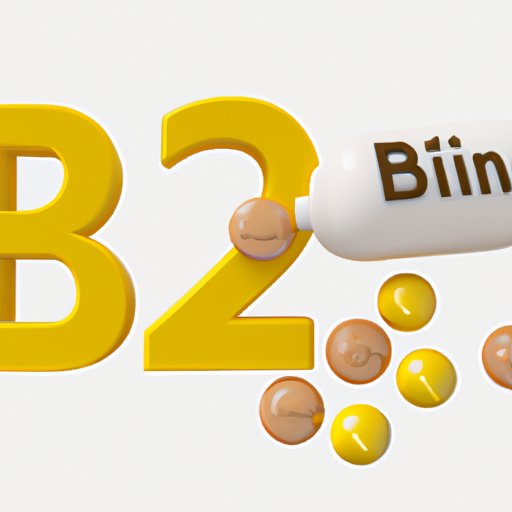
Introduction
Vitamin B12, also known as cobalamin, is an essential nutrient that plays a crucial role in the body’s overall function, from maintaining nerve cells to aiding red blood cell formation. Despite its importance, many individuals aren’t getting enough in their diet. In this article, we’ll dive into everything you need to know about vitamin B12 sources and how to ensure you’re getting enough.
The Importance of Vitamin B12 and How to Get Enough of It
Vitamin B12 is a crucial nutrient for the body, playing a role in DNA synthesis as well as maintaining nerve cells. A deficiency in vitamin B12 can lead to anemia, fatigue, and even neurological issues. For this reason, it’s essential to ensure that you’re getting enough vitamin B12 in your diet or considering supplements to fill the gaps. The recommended daily intake for adults is 2.4 mcg, with adjusted amounts for different age groups.
A Beginner’s Guide to Understanding Vitamin B12 Sources
There are various sources of vitamin B12, including animal-derived products like meat, fish, and dairy, as well as fortified foods and supplements. When looking to incorporate vitamin B12 into your diet, it’s important to read the labels thoroughly to ensure you’re getting enough of it per serving. If you’re considering supplements, it’s best to speak with a healthcare provider to determine the correct dosage for your needs.
Still, there are a few misconceptions around vitamin B12. For example, many believe that getting enough B12 through plant-based sources like spirulina and tempeh is possible. However, these plant-based sources only contain analogs, which can cause interference with metabolic pathways. For this reason, finding reliable animal-based sources or supplements is essential to reach recommended daily intake.
Top 5 Food Sources of Vitamin B12 You Should Include in Your Diet
If you’re looking to include more vitamin B12 in your diet, incorporating some of the following food sources can help:
- Beef Liver: With a serving size of about 3 ounces, beef liver packs in around 70.9 mcg of vitamin B12, well above the daily recommended intake.
- Clams: A serving size of 3 ounces of cooked clams can provide up to 84.1 mcg of vitamin B12.
- Tuna: With a 3-ounce serving size, tuna provides about 2.5 mcg of vitamin B12.
- Fortified Cereals: Many cereals fortified with vitamin B12 can provide up to 6 mcg per serving, making them an easy breakfast option.
- Fortified Plant Milk: Plant milks like almond or soy can offer anywhere from 1-3 mcg of vitamin B12 per serving.
Why Going Plant-Based Might Affect Your Vitamin B12 Intake
While plant-based diets can be healthy, those on a vegan or vegetarian diet may struggle to consume enough vitamin B12 through food alone. For those who don’t consume animal products, fortified foods like cereals and milk alternatives can help supplement intake. Alternatively, supplements in the form of pills, sprays, or injections can be an effective way to maintain overall vitamin B12 levels.
Demystifying Vitamin B12: Natural vs. Synthetic Sources
Vitamin B12 supplements come in two forms, natural and synthetic. Natural supplements are derived from animal products, while synthetic versions are made in a laboratory. While the two are chemically identical, some individuals prefer to get their vitamin B12 from natural sources. Still, both types of supplements can be effective in raising vitamin B12 levels and preventing deficiencies.
Conclusion
Vitamin B12 plays a crucial role in the body, from maintaining nerve and red blood cells to aiding in DNA synthesis. It’s essential to ensure proper intake through a balanced diet, including animal-derived or fortified foods and supplements, to maintain overall health. Remember to read the labels thoroughly and speak with a healthcare provider to determine the right dosage for your individual needs.





